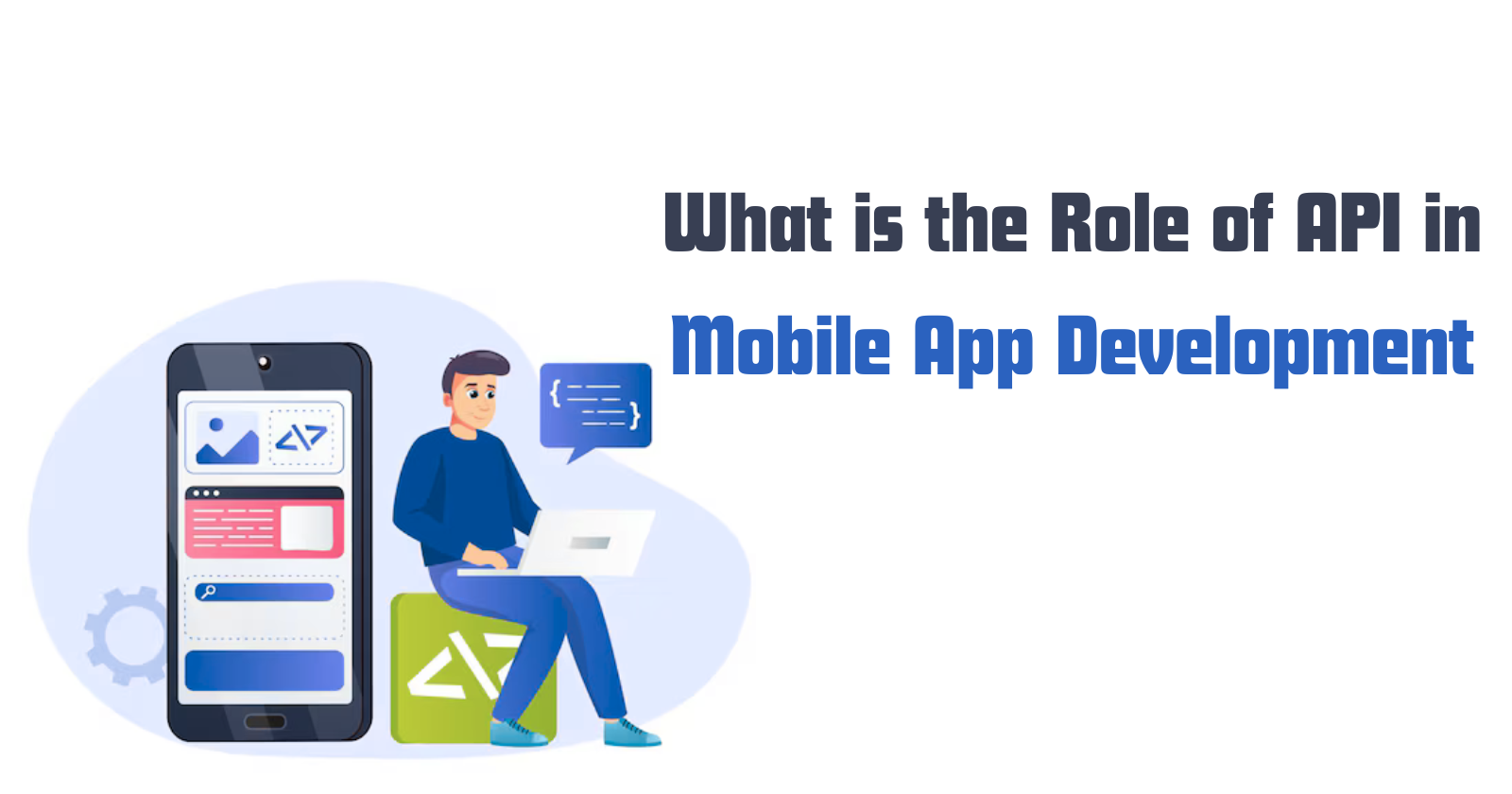What is the Role of API in Mobile App Development
 TRooTech Business Solutions
TRooTech Business Solutions
APIs (Application Programming Interfaces) play a pivotal role in mobile app development, acting as the bridge that connects different software systems, enabling seamless communication and functionality. In today’s digital landscape, where mobile apps require extensive features, real-time interactions, and data synchronization, APIs have become an indispensable component for backend development.
Understanding APIs in Mobile App Development
An API is a set of protocols and tools that allow applications to interact with other software, services, or hardware components. Whether it’s integrating third-party services, accessing cloud-based storage, or ensuring compatibility with multiple platforms, APIs streamline development while enhancing performance. A custom software development company often relies on APIs to build robust mobile applications with smooth user experiences.
With the growing demand for connected applications, businesses leverage APIs to create scalable, feature-rich mobile solutions. From social media logins to payment gateways, APIs facilitate essential functions without requiring developers to build everything from scratch. This not only accelerates the development process but also ensures security and reliability.
Enhancing Functionality Through API Integration
One of the primary reasons APIs are crucial in mobile app development is their ability to enhance functionality without increasing development complexity. Instead of building every feature manually, developers integrate existing APIs to add functionalities such as
Authentication and Authorization – APIs enable secure login mechanisms through OAuth, allowing users to sign in via Google, Facebook, or Apple ID.
Payment Processing – Apps that require financial transactions integrate APIs from payment providers like Stripe, PayPal, or Razorpay.
Geolocation Services – Navigation-based apps rely on APIs such as Google Maps or Mapbox to provide real-time location tracking and route mapping.
Cloud Storage and Database Management – APIs facilitate cloud integration, enabling users to access and store data securely without relying solely on device storage.
Integrating APIs effectively ensures that mobile applications meet user expectations while maintaining efficiency.
APIs and Seamless User Experience
A seamless user experience is essential for the success of mobile applications. APIs allow mobile apps to communicate with backend services in real time, ensuring fast and smooth interactions. For example, in e-commerce apps, APIs fetch product details, update inventory, and process orders instantly, improving user engagement.
Additionally, APIs enable cross-platform compatibility, allowing mobile apps to function consistently across iOS, Android, and web platforms. This ensures that users receive a uniform experience regardless of the device they are using. The ability to integrate APIs for different screen sizes and operating systems enhances the flexibility of mobile app development.
Security and Data Protection in API Integration
Security remains a top priority when incorporating APIs into mobile applications. Since APIs facilitate data exchange between apps and servers, they must be secure to prevent unauthorized access and breaches. Developers implement various security measures, such as:
API authentication protocols like OAuth and JWT tokens
Data encryption to protect sensitive user information
Rate limiting and throttling to prevent API abuse and overuse
A well-secured API ensures that mobile applications remain resilient against cyber threats while maintaining compliance with data protection regulations. Businesses offering mobile app development services prioritize API security to safeguard user information and maintain trust.
The Role of APIs in Third-Party Integrations
Modern mobile applications require third-party services to enhance their functionality. APIs make this possible by providing seamless integration with various external platforms. Social media APIs, for instance, allow apps to connect with Facebook, Instagram, or Twitter, enabling features like content sharing, login authentication, and real-time feeds.
Similarly, APIs play a crucial role in mobile commerce. From integrating shipping providers to connecting with CRM systems, APIs simplify business operations. Without APIs, mobile applications would have to rely solely on built-in functionalities, limiting their capabilities and making them less competitive in the market.
Businesses looking for mobile app development services often seek API integration to streamline customer interactions and backend processes. Whether it’s incorporating AI-driven chatbots, push notification systems, or video conferencing tools, APIs empower developers to build applications that are more intelligent and responsive.
API-Driven Automation and Scalability
Automation is another area where APIs bring immense value. APIs facilitate background processes, automate repetitive tasks, and enhance the overall efficiency of mobile applications. For instance, in fintech apps, APIs automate financial transactions, while in healthcare applications, they enable real-time data synchronization between wearable devices and medical databases.
Scalability is a major concern for growing businesses, and APIs provide the flexibility needed to expand mobile applications effortlessly. As user demands increase, APIs help scale backend services without requiring significant modifications to the application itself. Cloud-based APIs, for example, allow businesses to handle fluctuating traffic without performance bottlenecks.
Companies offering mobile app development leverage APIs to future-proof applications, ensuring that they can adapt to evolving user requirements and technological advancements.
APIs and Real-Time Data Processing
The need for real-time data exchange has become more crucial than ever. APIs enable mobile applications to fetch and update data in real time, providing users with up-to-the-minute information. This is particularly beneficial in industries like finance, logistics, and healthcare, where timely updates are critical.
Consider a stock trading app that relies on market data APIs to display live stock prices and trading insights. Without APIs, such applications would fail to deliver accurate and timely information, leading to a poor user experience. Similarly, ride-hailing apps depend on APIs for real-time tracking of drivers and passengers, ensuring smooth navigation and ride scheduling.
Implementing real-time APIs ensures that applications remain relevant, competitive, and highly functional. The ability to process data instantly enhances decision-making and improves operational efficiency across various sectors.
Future of API Integration in Mobile App Development
As technology continues to evolve, the role of APIs in mobile app development is expected to expand further. Emerging trends such as AI-driven APIs, blockchain-based authentication, and IoT connectivity are reshaping the way applications function. Developers are increasingly adopting GraphQL APIs for more efficient data fetching, replacing traditional RESTful APIs in some scenarios.
Furthermore, APIs are facilitating the rise of super apps—multi-functional platforms that integrate various services within a single application. By leveraging API-driven architectures, developers can build interconnected ecosystems that offer users a seamless and comprehensive digital experience.
Businesses investing in mobile app development services must stay ahead by adopting API-first strategies, ensuring that their applications remain agile, interoperable, and ready for future advancements.
Conclusion
APIs have transformed mobile app development, enabling seamless integration, automation, security, and real-time data processing. They empower developers to build feature-rich applications without reinventing the wheel, ensuring scalability and a superior user experience. Whether it’s enhancing e-commerce functionalities, optimizing financial transactions, or integrating AI-driven services, APIs remain at the core of modern mobile applications.
For businesses seeking innovative digital solutions, collaborating with a custom software development company that prioritizes API integration can make all the difference. The future of mobile apps will continue to be shaped by APIs, making them an essential component in the ever-evolving digital ecosystem.
Subscribe to my newsletter
Read articles from TRooTech Business Solutions directly inside your inbox. Subscribe to the newsletter, and don't miss out.
Written by

TRooTech Business Solutions
TRooTech Business Solutions
TRooTech Business Solutions is the hub of 400+ tech minds available with the best custom software development solution for all your business requirements. With the aim to provide the most suitable and innovative technical solutions, we follow the latest technological trends and use the technology for all technical requirements. Our expertise in Machine Learning, Blockchain technology, IoT, AR/VR, Automation, and many more empowers us to deliver exceptional technological solutions.